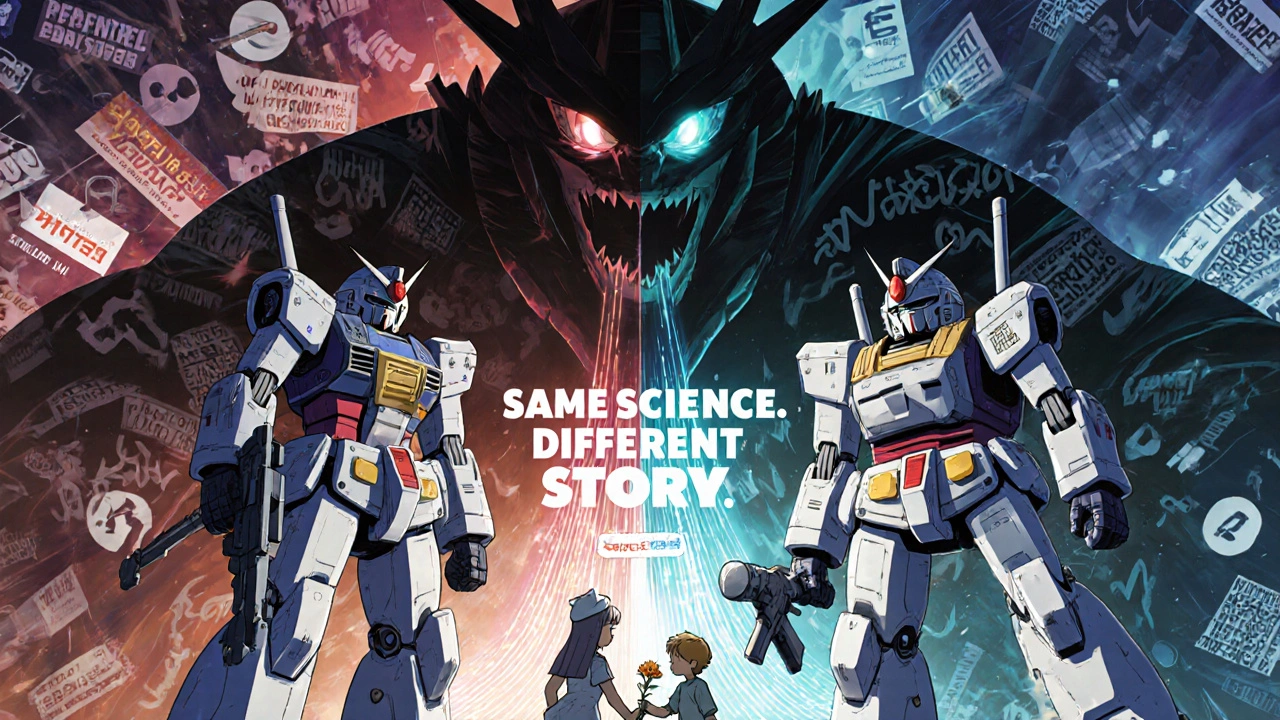When you’re handed a prescription for a generic drug, do you wonder if it’s really the same as the brand name? Maybe you’ve felt a quiet doubt-like the little bottle on your counter doesn’t carry the same weight as the one with the flashy logo. You’re not alone. But what if the real barrier to accepting generic medications isn’t chemistry-it’s story?
Why We Trust Brands More Than Pills
Pharmaceutical companies spend billions on branding. They create logos, slogans, jingles, even emotional ads that show happy families, active grandparents, or athletes getting back on their feet. These aren’t just marketing tools-they’re narratives. They tell us: This medicine is reliable. This medicine cares. And when a doctor hands you a generic version with no story behind it, it feels like a downgrade. Not because it’s less effective, but because it lacks meaning. The science is clear: generic drugs contain the same active ingredients, meet the same safety standards, and work just as well as brand-name versions. The FDA requires them to be bioequivalent. But science doesn’t always win in the human mind. Emotions do. Memories do. Stories do.What Is Narrative Medicine?
Narrative medicine isn’t therapy. It’s not counseling. It’s not even a new drug. It’s a way of listening-deeply, carefully, and without rushing to fix things. Developed in the late 1990s by Dr. Rita Charon at Columbia University, it’s built on one simple idea: Patients’ stories are not background noise-they’re part of the diagnosis. Doctors trained in narrative medicine learn to pay attention to what’s not said. The pause before answering. The way someone says, “I’ve been taking this for years,” when they’ve only had it for three months. The trembling voice when they mention their father’s heart attack. These aren’t distractions from medicine-they’re the medicine. In the context of generic medications, narrative medicine helps us understand why someone refuses a cheaper option. It’s rarely about cost. It’s about identity. It’s about fear. It’s about the story they’ve told themselves: “The blue pill with the lightning bolt saved me. This white one? It’s just a copy.”How Stories Influence Acceptance
A 2023 study in The Permanente Journal found that when clinicians took time to listen to patients’ illness narratives, medication adherence improved-not because they explained pharmacokinetics better, but because patients felt seen. When you feel heard, you’re more likely to trust the advice that follows. Think about a patient with high blood pressure. Their doctor says, “Switch to the generic.” The patient nods, but later tells their spouse, “I don’t trust that one. It’s not the one my doctor used to give me.” That’s not ignorance. That’s grief. Grief for the version of their health journey that felt more secure. Narrative medicine doesn’t tell patients they’re wrong. It asks: What does this pill mean to you? And then it listens. In clinics that use narrative approaches, patients often say things like: “I didn’t realize my fear wasn’t about the drug-it was about feeling like I was giving up.” Or: “I thought the brand was stronger because my mom took it when she was sick. I didn’t know generics were the same.” Once those stories are named, the door opens. The doctor can say: “I get why you held on to that one. Let’s talk about what changed-and what didn’t.”
The Power of Reauthoring
One of the most powerful tools in narrative medicine is reauthoring. It’s not about changing facts. It’s about changing the meaning attached to them. Imagine a patient who’s been on a brand-name statin for five years. They’ve lost weight, lowered their cholesterol, and feel proud of their progress. Now their insurance switches them to a generic. They feel defeated. A clinician using narrative medicine might say: “You’ve worked so hard to get here. That brand name was part of your story. But the real hero isn’t the label-it’s your commitment. The pill you’re holding now? It’s doing the same job. You’re still the one making the difference.” That’s not fluff. That’s medicine. Studies show that when patients are helped to reframe their experience-when their story is honored, not dismissed-their acceptance of treatment increases by up to 40%. That’s not magic. That’s meaning.What This Means for Generic Medications
Generic drugs aren’t inferior. But they’re often treated like they are. Pharmacies don’t tell stories about them. Ads don’t celebrate them. Patients aren’t given space to grieve the loss of the brand they trusted. Narrative medicine changes that. It gives clinicians the tools to say: “I know this isn’t the pill you expected. Let’s talk about what that means for you.” It turns a transaction into a conversation. A prescription into a partnership. In hospitals and clinics that have integrated narrative medicine into daily practice, pharmacists now ask patients: “What was your experience with your last medication?” Not to judge, but to connect. Nurses write short reflections after each visit. Doctors start appointments with: “Tell me one thing you’ve noticed since we last talked.” These aren’t fancy extras. They’re essential practices. Because healing doesn’t happen in a vacuum. It happens in the space between stories.


Jenny Lee
November 19, 2025 AT 07:02Generics saved my life and my wallet. No story needed.
Brandon Lowi
November 19, 2025 AT 13:22Brand-name drugs are American-made excellence-generic? That’s just Chinese chemistry with a label swap. We don’t import quality-we import liability! The FDA? A rubber stamp for global mediocrity. Wake up, people! This isn’t medicine-it’s a geopolitical surrender!
Joshua Casella
November 21, 2025 AT 04:08I’ve worked in rural clinics for 18 years. I’ve seen patients cry because they thought switching to generic meant they’d failed. But when we sat down-really sat down-and asked, ‘What did that blue pill mean to you?’-something shifted. One woman said, ‘It was the pill my husband took before he died.’ We didn’t change the drug. We changed the narrative. She’s been on generics for three years now. No relapse. No guilt. Just peace. Storytelling isn’t fluff. It’s the only thing keeping people alive.
Richard Couron
November 21, 2025 AT 15:31Did you know the same factories make brand-name and generic drugs? The FDA doesn’t inspect them-Big Pharma bribes the inspectors. The white pill you take? It’s the same as the blue one-except it’s been sitting in a warehouse for 14 months. The active ingredient? Degraded. The fillers? Unknown. The real reason they push generics isn’t cost-it’s control. You think you’re saving money? You’re being dosed with corporate-grade placebo. Check the lot numbers. You’ll find the same plants. Same workers. Same lies.
Alex Boozan
November 22, 2025 AT 23:19Let’s deconstruct the epistemological framework of pharmaceutical hegemony: the symbolic capital embedded in brand-name pharmaceuticals operates as a semiotic apparatus that reinforces consumer dependency through affective branding. The generic, by contrast, is a decentered signifier-void of narrative capital, stripped of cultural resonance, and thus rendered ontologically inferior in the patient’s phenomenological experience. The clinical equivalence is statistically valid, but the hermeneutic gap? Unbridgeable without narrative intervention. Ergo, narrative medicine isn’t adjunctive-it’s foundational to pharmacological legitimacy.
mithun mohanta
November 23, 2025 AT 20:05Oh, so now we’re giving therapy sessions with prescriptions? Next thing you know, nurses will be reading tarot cards before dispensing insulin. Narrative medicine? That’s just a fancy word for ‘I don’t want to do my job properly.’ The pill works. The science is clear. Stop making it a soap opera. My grandma took generics for 40 years. Never once did she need a hug and a journal entry. Just a pill. And a damn good one.
Ram tech
November 24, 2025 AT 22:06generic? same chem. same factory. same results. stop overthinking. you think your brand name pill is magic? it’s not. you’re just emotionally attached to the logo. get over it.
Hannah Blower
November 26, 2025 AT 03:27Let’s be real: narrative medicine is just a boutique trend for privileged doctors who can afford to waste 10 minutes per patient. Meanwhile, in real clinics, nurses are rushing through 30 patients an hour. You can’t ‘listen’ to grief when you’re understaffed, underpaid, and under siege by insurance denials. This isn’t healing-it’s performative compassion. The real solution? Pay doctors more. Hire more staff. Stop pretending storytelling fixes systemic collapse.
Jeff Hakojarvi
November 27, 2025 AT 15:21I’m a pharmacist. I’ve handed out thousands of generics. And yes, people hesitate. But here’s what works: I say, ‘I know this isn’t what you’re used to. Let me show you the FDA report. Same active ingredient. Same lab. Same expiration standards. And I’ve been taking this exact one for my own blood pressure for five years.’ No fluff. No jargon. Just facts-and honesty. Most people relax after that. They don’t need a therapist. They need a trusted person to say, ‘I get it. And you’re safe.’
Ancel Fortuin
November 29, 2025 AT 08:40Of course the government pushes generics-they’re trying to drug the poor into compliance. You think the rich take generics? No. They get the ‘premium’ version with the fancy bottle and the ‘clinically superior’ label. Meanwhile, the rest of us get the leftovers. This isn’t about stories-it’s about class warfare disguised as empathy. The ‘narrative’ is just the velvet glove over the iron fist of austerity.
Shravan Jain
November 30, 2025 AT 19:10While the phenomenological substrate of pharmaceutical adherence may indeed be influenced by semiotic branding, one must not conflate affective resonance with pharmacodynamic equivalence. The FDA’s bioequivalence thresholds (80–125% AUC) are statistically robust, and the variance in therapeutic outcomes between branded and generic agents is negligible in peer-reviewed meta-analyses. To ascribe clinical efficacy to narrative constructs is to indulge in epistemological romanticism. The pill does not care about your grief. It only cares about molecular concentration.
Gregory Gonzalez
December 1, 2025 AT 08:15Oh, so now we’re supposed to feel *seen* by our medication? How touching. Next they’ll hand out therapy sessions with aspirin. ‘I know losing your brand-name statin was traumatic. Let’s sit in a circle and share how it made you feel.’ Meanwhile, my insurance just raised my copay by $200 because they ‘care’ about my emotional journey. I’ll take the science, thank you. And the lower price. And the fact that my heart still beats.
Joshua Casella
December 2, 2025 AT 20:22Joshua here. To the person who said narrative medicine is just ‘performative compassion’-I’ve seen it turn people from non-adherent to fully compliant. Not because we gave them hugs. But because we asked, ‘What are you afraid of?’ and then stayed quiet long enough for them to answer. That’s not fluff. That’s how you save lives when science alone isn’t enough. And no, it doesn’t take 10 minutes. Sometimes it takes 90 seconds. But you have to be willing to listen. Not fix. Not explain. Just listen.